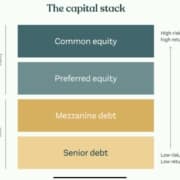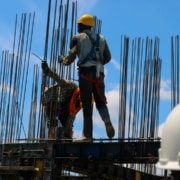Resetting the NSW building industry
Written by David Lovato – CPC Development Lending Solutions
June 2023
The New South Wales building regulation landscape significantly changed when David Chandler was appointed as the state’s inaugural building commissioner in 2019.
Mr Chandler was tasked with improving the quality of residential apartment buildings and restoring public trust in the industry following the Opal Tower and Mascot Towers incidents.
This is being achieved through the Construct NSW strategy, which focuses on six key areas for reform:
- Protecting homebuyers from defective building work through legislation
- Developing a rating system to make it easier for homeowners to identify trustworthy practitioners
- Upskilling the building and construction industry
- Strengthening standard contracts used in the industry by clearly outlining the roles and responsibilities of all practitioners
- Using digital platforms to improve transparency and communications between the government, the building sector and the community
- Conducting research and collecting data about the state of the industry, its capabilities and areas for change
Key reforms so far
In 2020, two major laws were passed by the state parliament:
- The Residential Apartment Buildings (Compliance and Enforcement) Act 2020 (The RAB Act)
- The Design and Building Practitioners Act 2020 (The DB Act)
The RAB Act gives the NSW Building Commissioner sweeping powers to enter a construction site and issue a:
- Prohibition order: This prohibits the issue of an occupation certificate and/or the registration of a strata plan for a residential apartment building
- Stop work order: This prevents a developer from continuing work
- Building work rectification order: This requires a developer to carry out or refrain from carrying out building work to eliminate, minimise or remediate a serious or potential serious defect
Meanwhile, the DB Act requires designers, engineers and builders working on new residential apartment buildings in NSW to declare the compliance of their work with the Building Code of Australia. In doing so, it imposes a duty of care meaning that current and future owners can make a claim against them if they act negligently.
When the RAB and the DB Act came into effect in 2020 they applied only for apartment buildings. However, from 1 July 2023, both Acts are being bolstered to include other types of buildings where people live and work, such as shared accommodation, hostels, boarding houses and residential aged care.
The NSW government also released the Independent Construction Industry Rating Tool (iCIRT). This uses a five-star system to rate builders on their apartment build to help homebuyers find a “trustworthy” developer.
Reforms in the pipeline
It’s no secret that a perfect storm is wreaking havoc on Australia’s construction industry with companies failing amid challenging conditions.
As such, the next phase of the NSW building reforms will look at reducing insolvency risks and improving outcomes for consumers by:
- Establishing clear lines of responsibility and end-to-end accountability – for example, by developing new contract terms where developers may indemnify consultants and builders for some work done by prior developers and others to ensure clear continuing accountability.
- Promoting active project governance, monitoring and risk identification
- Addressing insolvency risks through proper financial due diligence
- Requiring completion undertakings and securities in most of these procurement models from financiers, developers, and/or receiver managers.
Crowd Property Capital is a property development finance specialist. We help property developers overcome their funding challenges by sourcing loans for land, construction and residual stock. Contact us at info@crowdpropertycapital.com.au or fill in this form.













